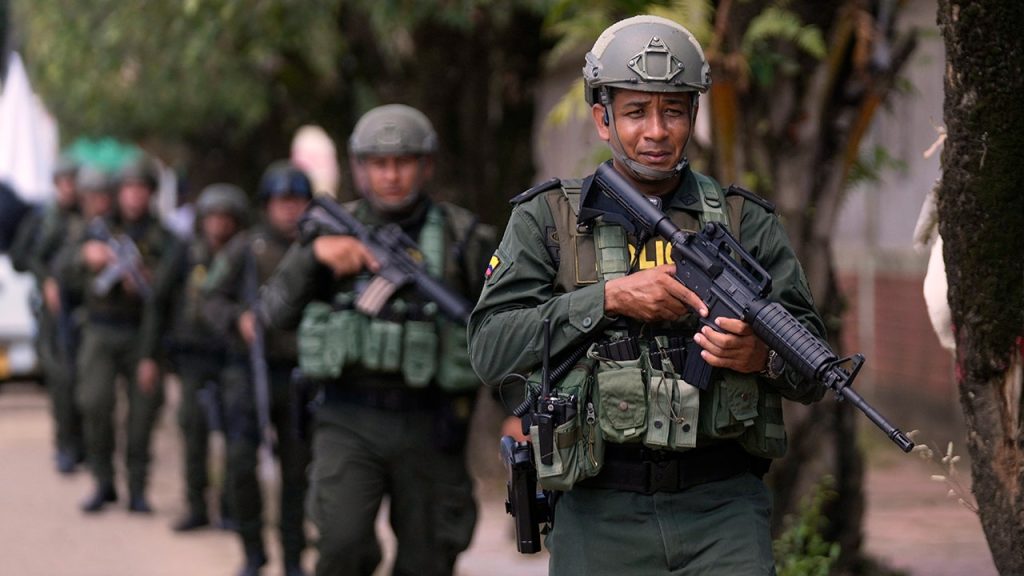Colombia’s President Gustavo Petro has invoked emergency powers in the Catatumbo region, a coca-rich area bordering Venezuela, to address a escalating conflict between dissident rebel groups. This decree, which can be extended for up to 90 days, grants Petro the authority to implement measures such as curfews and traffic restrictions, bypassing typical legislative procedures and potentially infringing upon certain civil liberties. The decision marks the first time in over a decade that a Colombian president has resorted to such drastic measures, highlighting the gravity of the situation in a nation long grappling with the legacy of political violence. The geographically isolated Catatumbo region has historically posed a challenge for the Colombian government to establish control, rendering it a breeding ground for armed conflict and illicit activities.
The recent surge in violence stems from a deadly turf war between the National Liberation Army (ELN) and factions of the Revolutionary Armed Forces of Colombia (FARC) that refused to demobilize after the 2016 peace accord. The escalating conflict has resulted in a devastating humanitarian crisis, with at least 80 people killed and an estimated 36,000 displaced in the past week alone. Many of those fleeing the violence have sought refuge across the border in Venezuela, further demonstrating the regional implications of this internal conflict. The violence underscores the fragility of the peace process and the persistent challenges in establishing stability in post-conflict Colombia.
Petro’s decision to invoke emergency powers has drawn both criticism and support. Critics, primarily from conservative factions, accuse the former guerrilla fighter of overstepping constitutional boundaries. They argue that such a drastic measure sets a dangerous precedent and could undermine democratic processes. Conversely, some activists and residents of the affected region welcome the move. They express hope that the increased governmental control will pave the way for long-overdue improvements in infrastructure, healthcare, and education, addressing the underlying socio-economic factors that contribute to the region’s vulnerability to armed groups. They argue that decades of government neglect have created a vacuum filled by these illegal organizations and that only decisive action can break this cycle of violence and underdevelopment.
The escalating conflict has further complicated Petro’s efforts to negotiate a peace deal with the ELN, a Cuban-inspired Marxist insurgency that has been waging war against the Colombian state for six decades. Earlier this week, Petro reactivated arrest warrants for 31 top ELN commanders, effectively suspending the ongoing peace talks. These arrest warrants had previously been suspended as a gesture of goodwill in an attempt to entice the ELN to the negotiating table. The breakdown of the peace talks raises serious concerns about the prospects for a peaceful resolution to the conflict and casts a shadow over Petro’s ambitious peace agenda.
The ELN, traditionally dominant in the Catatumbo region, has been facing increasing pressure from FARC dissident groups, vying for control of lucrative drug trafficking routes and other illicit activities. The FARC, once Colombia’s largest guerrilla group, largely demobilized following the 2016 peace accord. However, several factions refused to lay down their arms, continuing their involvement in drug trafficking and other criminal enterprises. The current conflict highlights the challenges in reintegrating former combatants into civilian life and the persistent threat posed by these dissident groups to long-term stability.
The current whereabouts of the ELN peace negotiators remain unclear. Cuba, one of the guarantor nations of the peace process, has confirmed that the negotiators are not on the island. Speculation abounds that they may have sought refuge in Venezuela, a key supporter of Petro’s peace initiative and a country with known ties to the ELN. The uncertainty surrounding their location further complicates the already fragile peace process and raises questions about the future of negotiations. The unfolding events in Catatumbo represent a significant test for Petro’s presidency and his commitment to achieving lasting peace in Colombia.

